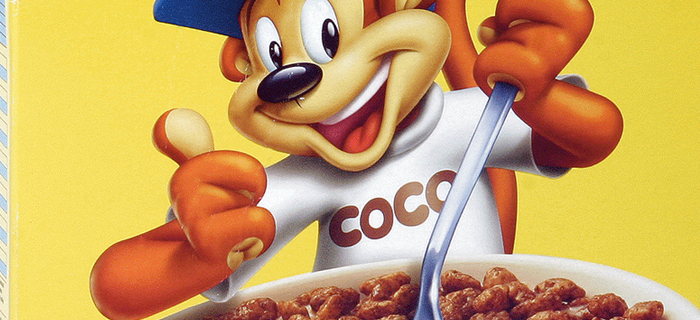Kinderen en jongeren zijn continu in het nieuws. De meest lezenswaardige/opvallende berichten uit andere bronnen verzamel ik wekelijks in een post met ‘kortjes’ – oneliners met een linkje naar het oorspronkelijke artikel. KLIK & LEES:
Happy April Fools’ Day! — this year, all the usual brand suspects are joined by a host of tech companies and startups in trying to throw you for a loop—a near impossibility these days (Adfreak)
Ahh, cats… if content is king, then that king must be furry and ‘meow’ a lot, because cats are surely the ruler of the internet; there are over a whopping 30 million searches for ‘cat’ a month on Google and cats go viral more quickly than any other animal (The Drum)
“For a few years, I got caught up in the ‘Anything You Can Do I Can Do Better’ parenting model, but suddenly, it came to me: we do not need to make our children’s childhood magical — childhood is inherently magical, even when it isn’t perfect” (The Huffington Post)
The difference between east and west, rich and poor becomes stark when looking at how our children sleep at night; Where Children Sleep, a project by photographer James Mollison, is set to highlight children’s rights by contrasting the different living situations for young people across the globe (DailyMail)
Cereals marketed to kids are often placed at a lower shelf height—and characters on the cereal boxes are typically drawn to make eye contact with children: “Eye contact with cereal spokes-characters increased feelings of trust and connection to the brand” (Businessweek)
The Federal Trade Commission has begun aggressively going after tech companies suspected of violating the Children’s Online Privacy Protection Act: “The FTC remains committed to protecting children’s privacy online, even as mobile technology continues to evolve quickly” (VentureBeat)
In their efforts to offer the best, most accessible content to tech-savvy kids, wherever and whenever they want it, US kidnets Nickelodeon, Disney Channel and Sprout have recently launched innovative streaming-based services aimed to educate and entertain their youngest viewers (Kidscreen)
If you want a glimpse into the future of the television studio, look no further than Disney’s acquisition of Maker Studios; the acquisition provides direct access to a vast community of video producers who could be the TV artists of tomorrow (Wired)
Watching other people play computer games is big business; more than 71 million people worldwide watched eSports last year, half in the United States, according to SuperData (Quartz)
There is now an app which is designed specifically to make you look skinnier in your selfies; SkinneePix promises to make it look like you’ve shed 5, 10 or 15 lbs with just the click of a button — that’s not a look that is healthy or attractive, and certainly shouldn’t be desirable (The Guardian)
Millennials are navigating a wide-open sexual terrain that no previous generation has encountered – one with more opportunity, but also more ambiguity; less sex, but potentially better sex, or at least sex that has the potential to exist as much for its own sake as it does for any other (Rolling Stone)
The 18-year-old Stian Ytterdahl tattooed a his receipt from a trip to McDonald’s on his arm: “I think all this is just fun, maybe it’s not as fun when I’m 50 or 60 years old, but it’s my choice” (DesignTaxi)
Research, published in JAMA Pediatrics, found that parents who set limits when it comes to screen time can count on some seriously positive results for their kids — including improved sleep, better grades, less aggressive behavior, and lower risk of obesity (Yahoo!)
Teachers, parents and poets alike know how children thirst for poetry — now it’s up to booksellers and publishers to save it from extinction (The Guardian)
Converse CMO Geoff Cotrill about the ideas behind Rubber Tracks, and why it benefits the brand to work with unknown artists: “We think of musicians and artists as our core consumer instead of somebody who we can borrow cool things from” (Fast Company)
Besides Coke and Red Bull other leading brands are gearing up their new, non-linear TV strategies; by doing so the POE ecosystem is the new media ecosystem — to increase ROI on their media investments (ViralBlog)
Als WK-sponsor pakt Coca-Cola uiteraard groot uit met het naderende wereldkampioenschap; het frisdrankmerk koos een originele invalshoek door in zee te gaan met de fabelachtige freestyle-voetballer Soufiane Touzani — samen met rapper Winne scoort hij in Rotterdam (MarketingTribune)
[youtube http://www.youtube.com/watch?v=CU4NFfR7sRg]Met de Doritos Jacked Straatrace haakt Doritos in op de groeiende trend van jongeren die hun brommer inruilen voor een 45 kilometer ‘waggie’; als je maar 45 kilometer per uur mag rijden, doe het dan in stijl, vinden de bekende rappers in de commercial (Adformatie)
Bij 24% van de jongeren van 16-24 jaar resulteert het zien van een tv-commercial of andere vorm van sponsoring op tv in online zoekgedrag, aldus het Deloitte-rapport What Television is: 2013 An Industry of industries; dit is opvallend hoog in vergelijking met andere leeftijdsgroepen (Clou)
Jongeren whatsappen inmiddels al vaker dan ze een e-mail versturen: 77% verstuurt elke dag berichten via WhatsApp aan vrienden, terwijl slechts 44% dagelijks mails verstuurt, blijkt uit onderzoek van YoungCapital (Emerce)
Voor de nieuwste videoclip van Ronnie Flex besloot een team creatieven iets nieuws te proberen: een videoclip speciaal gemaakt voor smartphones, die gebruik maakt van alles wat een smartphone te bieden heeft (Motherboard)
De gemiddelde creativiteit van jonge kinderen neemt toe als ze de wereld kunnen ontdekken aan de hand van audiovisueel materiaal, blijkt uit een onderzoek van de Katholieke Hogeschool Leuven: “Een stimulans voor de onderwijswereld om meer multimediaal aan de slag te gaan” (HBVL)
Kinderen die niet lang voor de televisie hangen zijn slimmer, slanker en hebben meer manieren dan leeftijdsgenootjes die dat wel doen, blijkt uit een onderzoek aan de Iowa State-universiteit (De Standaard)
Een app waarmee je ouders je overal in de gaten kunnen houden — het was schrikken voor sommige kinderen toen ze dat nieuws hoorden; nergens voor nodig, het was 1 april (Jeugdjournaal)
Kinderen van een basisschool uit Heerhugowaard zijn beetgenomen door hun juf; de kleuters geloofden dat de lerares dinsdag 30 gewonnen iPads zou verdelen in de klas, maar op 1 april kregen de kinderen een gewatteerde pet met het opschrift ‘aaiPet’ (NOS)
Het stereotype beeld dat jongeren hebben van leeftijdsgenoten die drinken of niet drinken kan beïnvloed worden; door informatie over drinknormen van leeftijdsgenoten of over het imago van drinkers te verstrekken kunnen jongeren er andere beelden over drinkers op nahouden (FoodHolland)
Onze jeugd is bang – en banger dan nodig, dat is de opvallendste vaststelling uit de derde Vlaamse jongerenmonitor; hoewel ze minder het slachtoffer worden van criminaliteit, is het aantal 16- tot 25-jarigen dat ’s avonds niet meer op straat durft verdubbeld (HLN)
Op het Einstein Lyceum in Hoogvliet is commotie ontstaan over geheime opnames die een leerling maakte voor een programma over pesten bij RTL 5: “De leerlingen zijn in hun persoonlijke integriteit aangetast” (AD)
De Kinderombudsman vindt dat kinderen die een scheiding meemaken, beter moeten worden beschermd; hij stelt voor dat alle ouders die uit elkaar gaan, verplicht hulp krijgen — in een online cursus voor scheidende ouders vertellen jongeren hun verhaal (NOS)
Nederlandse jongeren wonen vaker op zichzelf dan het Europees gemiddelde, blijkt uit cijfers van de Europese Stichting voor de Verbetering van Leef- en Werkcondities; in Nederland woont 33% van de 18-29-jarigen nog bij hun ouders (NU.nl)

